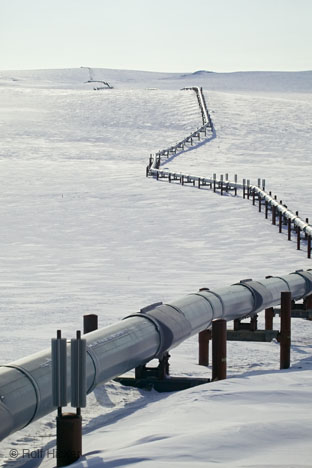BP oil spill
Out of context: Reply #388
- Started
- Last post
- 649 Responses
- ukit0
Last summer, BP celebrated the 25th anniversary of the Trans-Alaska Pipeline. The company put on a big barbecue; speeches were given. But those celebrations were overshadowed by the fact that BP's North Slope production, which peaked at two million barrels a day in the mid-1980's, has dwindled to less than a million today. As production has declined, BP -- already the largest operator on the slope, with roughly 30 percent of the state's oil-extraction industry -- has lobbied to open the Arctic National Wildlife Refuge to the east and built the first offshore oil projects in the Arctic Ocean to the north. BP's mantra is to make ''zero environmental impact'' and to leave only a ''small industrial footprint.'' And by most accounts, it does wield its ground-eviscerating equipment with great care. But the bottom line is that BP's stock price -- and its obligations to shareholders -- hinges on locating more oil fields. And any new field, subjected to the drill bit, is a potential insult to the earth.
In the fall of 2000, Browne made it clear that if the Arctic refuge -- an iconic 19-million-acre tract of land in northeast Alaska that is home to polar bears and grizzlies, wolves, musk oxen and a 125,000-strong herd of caribou -- was opened up under a Republican administration, BP would be interested in exploring there. After all, the United States Geological Survey estimates that the refuge contains anywhere from 3 billion to 16 billion barrels of recoverable oil. Again on Feb. 13, 2001, three weeks after Bush took office, Browne acknowledged that BP openly supported efforts to drill.
BP's stated intentions for the refuge happened to coincide with its ''Beyond Petroleum'' campaign, and environmentalists had a field day pointing out the inconsistencies. Greenpeace announced that until BP started seriously investing in renewables, a more fitting corporate logo would be, in the words of one spokeswoman, ''a miserable polar bear on an icecap shrinking because of global warming.'' John Browne himself was honored by Greenpeace for giving the ''Best Impression of an Environmentalist.'' And referring to the company's interest in the Arctic refuge, The Independent wrote that it was ''strange that a company boss with prominent green pretensions should advocate -- openly -- what many people would see as the industrial rape of an unspoiled wilderness.''
The protests over BP's position on the Arctic refuge could not have come at a worse time. Just a few months earlier, the company's new advertising campaign was met in some corners with howls of derision and even demonstrations outside its London offices. Stung by the controversy, the company tried to pull several TV spots, and where that time was locked in by contract, BP lost ''several million dollars,'' according to two people involved in the ad campaign. In cases where ads could not be pulled, the company removed the words ''Beyond Petroleum.'' ''It's funny,'' says one of them, ''I never doubted that they were the most progressive oil company around, but they didn't think through what it would require from a P.R. point of view. By pulling the ads, they showed weakness rather than having the courage of their convictions, which is what the whole rebranding effort was all about.''
Later, when the time came to prepare for the campaign's second phase, BP once again waffled over whether to use the phrase ''Beyond Petroleum.'' ''I was in so many meetings when the answer was no, yes, no, yes,'' says one member of the ad team. And the company's concern over how its P.R. message was being perceived delayed the campaign for more than a year.
